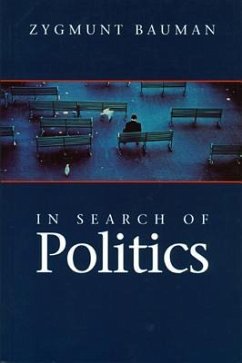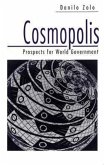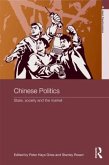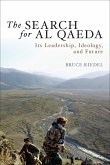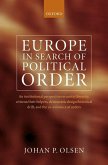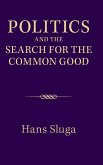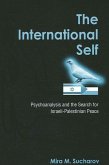We live in a world which no longer questions itself, which lives from one day to another managing successive crises and struggling to brace itself for new ones, without knowing where it is going and without trying to plan the itinerary. And everything important in our lives - livelihood, human bonds, partnerships, neighbourhood, goals worth pursuing and dangers to avoid - feels transient, precarious, vulnerable, insecure, uncertain, risky. Is there a connection between the shape of the world we inhabit and the way we live our lives? Exploring that connection, and finding out just how close it is, is the main concern of this book. What is at stake in this inquiry is the possibility of re-building the"'private/public" space, where private troubles and public issues meet and where citizens engage in dialogue in order to govern themselves. Individual liberty can only be a product of collective work, it can only be collectively secured and guaranteed. And yet today we are moving towards a privatization of the means to secure individual liberty. If seen as a therapy for the present ills, this is bound to produce effects of a most sinister kind. The act of translating private troubles into public issues is in danger of falling into disuse and being forgotten. The argument of this book is that making the translation possible again is an urgent and vital imperative for the renewal of politics today. This new book by Zygmunt Bauman - one of the most original and creative thinkers of our time - will be of particular interest to students of sociology, politics and social and political theory.
"With In Search of Politics, the prolific Zygmunt Baumanjoins other European social theorists in seeking to illuminate thecurrent political landscape...The account is at times persuasiveand never less than eloquent" Sam Pryke, The Times HigherEducation Supplement
'Zygmunt Bauman can be counted among those giants of sociology -C. Wright Mills, Emile Durkheim, Max Weber - who are bound togethernot by a shared ideological or disciplinary alignment, but by aprofound and moral passion. I do not employ the term "moral" in thecommonly used sense of "judgmental", but to describe their abilityto define the spirit of the age, to ask cutting questions aboutsociety's direction, warn of dangers and perceive opportunities ...In Search of Politics is a plea for the return of politics,in the classic sense, politics as a sense of membership of a polis,a community with shared tasks.' Contemporary Politics
'Bauman's thesis is accessible, persuasive and vividly presented... it flows with ideas and passion.' Sociology
'The book has a clear normative approach, which the strength ofBauman's arguments and the force of his writing make quitecompelling ... The great value of this book is Bauman's uniqueability to critique the modern categories and values, without atthe same time rejecting them out of hand.' PeaceResearch
'Zygmunt Bauman can be counted among those giants of sociology -C. Wright Mills, Emile Durkheim, Max Weber - who are bound togethernot by a shared ideological or disciplinary alignment, but by aprofound and moral passion. I do not employ the term "moral" in thecommonly used sense of "judgmental", but to describe their abilityto define the spirit of the age, to ask cutting questions aboutsociety's direction, warn of dangers and perceive opportunities ...In Search of Politics is a plea for the return of politics,in the classic sense, politics as a sense of membership of a polis,a community with shared tasks.' Contemporary Politics
'Bauman's thesis is accessible, persuasive and vividly presented... it flows with ideas and passion.' Sociology
'The book has a clear normative approach, which the strength ofBauman's arguments and the force of his writing make quitecompelling ... The great value of this book is Bauman's uniqueability to critique the modern categories and values, without atthe same time rejecting them out of hand.' PeaceResearch
